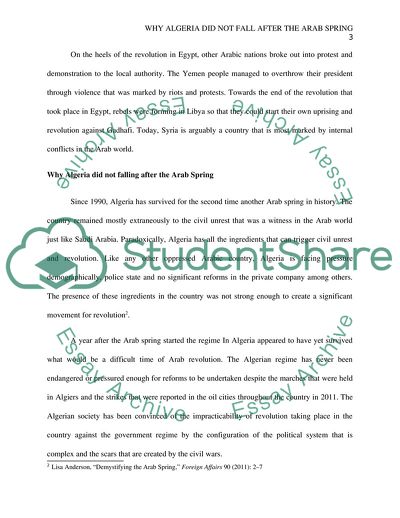Cite this document
(Why Algeria did not Falling after the Arab Spring Assignment Example | Topics and Well Written Essays - 1500 words, n.d.)
Why Algeria did not Falling after the Arab Spring Assignment Example | Topics and Well Written Essays - 1500 words. https://studentshare.org/history/1843727-short-research-paper
Why Algeria did not Falling after the Arab Spring Assignment Example | Topics and Well Written Essays - 1500 words. https://studentshare.org/history/1843727-short-research-paper
(Why Algeria Did Not Falling After the Arab Spring Assignment Example | Topics and Well Written Essays - 1500 Words)
Why Algeria Did Not Falling After the Arab Spring Assignment Example | Topics and Well Written Essays - 1500 Words. https://studentshare.org/history/1843727-short-research-paper.
Why Algeria Did Not Falling After the Arab Spring Assignment Example | Topics and Well Written Essays - 1500 Words. https://studentshare.org/history/1843727-short-research-paper.
“Why Algeria Did Not Falling After the Arab Spring Assignment Example | Topics and Well Written Essays - 1500 Words”. https://studentshare.org/history/1843727-short-research-paper.


